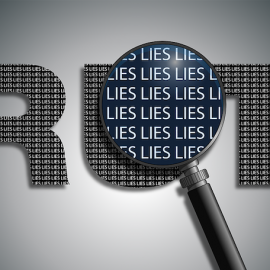

This article is an excerpt from the Shortform summary of "Nudge" by Richard H. Thaler and Cass R. Sunstein. Shortform has the world's best summaries of books you should be reading.
Like this article? Sign up for a free trial here .
What is the anchoring and adjustment bias? How does it impact your decisions?
The anchoring and adjustment bias takes something you know and adjusts it to estimate what you don’t know. The “bias” comes from the way that what you know skews your estimation.
Read more about the anchoring and adjustment bias.
The Anchoring and Adjustment Bias
When we “anchor and adjust” when making a judgment, we take a fact we know (or think we know) and adjust it to account for the fact we don’t.
Let’s say, for example, that someone asks you to guess the population of Boston. You don’t know the population of Boston, but you do know the population of Worcester, and you know that Boston is quite a bit bigger than Worcester. So, using Worcester’s population as your “anchor,” you adjust upwards to make an “educated guess” at the population of Boston. All good, right?
Unfortunately, studies have shown that people who “anchor and adjust” guess incorrectly in entirely predictable ways. For example, people who use a lower number as an anchor—e.g., using the population of Worcester to guess the population of Boston—will tend to guess too low, whereas people using a higher number as an anchor—e.g., using the population of New York to guess Boston’s—will tend to guess high.
The anchoring and adjustment bias occurs in nonquantitative guesses as well. For example, one study asked college students two questions: (1) How happy are you? and (2) How often are you dating? When the questions were ordered 1-2, there was little correlation between the two answers. When the order was reversed, however, so that the dating question came first, the correlation jumped nearly sixfold—the students took their dating number and used it to determine whether they were happy.
Mental Accounting
Economists conceptualize money as “fungible”—that is, useful for a variety of consumption activities. But, through mental accounting, the Planner part of our personality curtails money’s fungibility—it earmarks specific amounts for specific purposes. Mental accounting will be familiar to anyone who has looked at their monthly paycheck and mentally deducted their recurring expenses—rent, credit-card payments—to see if they can afford the new device they’ve been coveting.
The problem is that we’re not all equally adept at violating money’s fungibility. To take an extreme case, a compulsive gambler will see his or her “rent” funds as perfectly usable at a casino.

———End of Preview———
Like what you just read? Read the rest of the world's best summary of Richard H. Thaler and Cass R. Sunstein's "Nudge" at Shortform .
Here's what you'll find in our full Nudge summary :
- Why subtle changes, like switching the order of two choices, can dramatically change your response
- How to increase the organ donation rate by over 50% through one simple change
- The best way for society to balance individual freedom with social welfare






